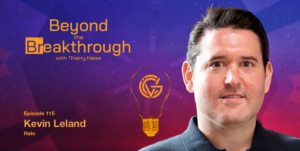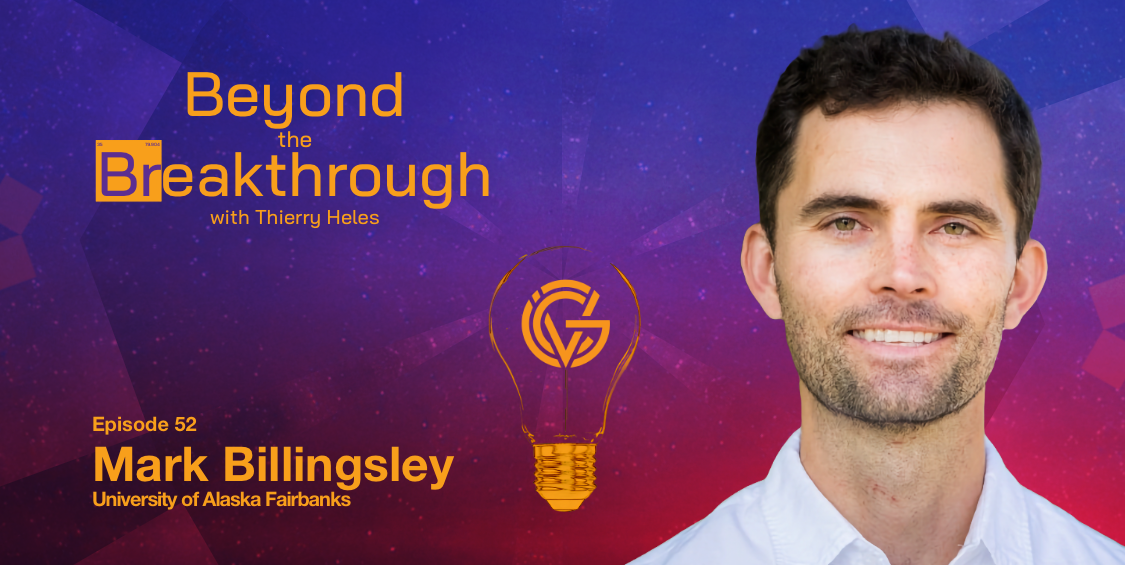-
Panel discussion: What does the hospital of the future look like?
How do you get beyond the many roadblocks stopping cutting-edge technology from being adopted by healthcare providers – which naturally have a lot of safety concerns, and often sizeable budget constraints too. Are hospitals moving to being completely decentralised in the future? And is AI about to revolutionise how hospitals are run?
-
Karin Immergluck: Stanford’s biggest challenge is complacency (rebroadcast)
Stanford may be a recognised world-leader when it comes to startups, but it mustn’t rest on its laurels. Sometimes that even means launching initiatives that others have long had — that is just one of the lessons that Karin Immergluck, executive director of Stanford’s Office of Technology Licensing, has learnt. Karin also tells us what the US can learn from its international peers, why TenU is an important component of her work and she examines the importance of erasing bias in hiring processes, including in leadership positions.
-
Panel discussion: Funding for all — unlocking diversity in spinouts
Diversity is not just about making sure more women and underrepresented minorities are on founding teams. When they do create businesses, they are typically ignored by venture capital investors who look for the same type of founders that have previously made money (creating a vicious circle). In the US, female founders raised just 2% of the VC money in 2023, and in Europe it was even less at 1.8%, according to PitchBook.
-
Kevin Leland: Halo has researchers on speed dial for corporates
Imagine your corporate R&D team is facing a problem so complex it requires the world’s top researchers to solve. How do you find the right expert? You could scour endless academic papers or slowly build relationships with individual universities. You could invest in startups that are developing a solution. Or you could go to Halo, a matchmaker for cutting-edge research and real-world problems.
-
Panel discussion: The key ingredients of successful spinout teams
A PhD student who sets up a spinout and becomes its CEO is 21% better at returning an investor’s money than a serial founder would be if installed in the same spinout. Even more impressively, a PhD student turned chief executive is 46% better at making a venture capital fund money than a former CEO from a large company would be.
-
Kelley Rich: Fighting poverty with university spinouts
Can university spinouts help fight poverty? That’s a question Kelley Rich, interim vice-president for innovation at the University of Notre Dame, is trying to answer as head of the institution’s innovation hub IDEA Center. It’s part of a campus-wide initiative launched in January 2024 that will see increased poverty research taking place — it gets to the heart of the private Catholic university’s mission of bringing about positive societal change.
-
Mark Billingsley: How to launch spinouts when there are no VCs (re-broadcast)
Mark Billingsley, director of the University of Alaska Fairbanks‘ Tech Transfer Office and Innovation Hub, joined Beyond the Breakthrough in April 2022 and today we’re revisiting this conversation because it’s still one of the most unusual places covered on the podcast.
-
Tatiana Litvin-Vechnyak: Overcoming Georgetown’s spinout challenge
Weirdly, being located at the heart of the US capital doesn’t always help Georgetown University when it comes to creating spinout companies. State universities often have economic development mandates that they can follow, but in Washington DC Georgetown is in something of a vacuum — with little direction for what to focus on, less set funding and fewer people pushing to advance the technologies coming out of the institution.
-
Jennifer Kuan: How to steal Silicon Valley’s secret sauce
Silicon Valley is the home of venture capital and startups — but drive an hour or two outside of the city and you are in a different world. Take Monterey, the site of our own GCVI Summit (March 12 to 14 — listen to the episode to get a 10% discount code on tickets). It is a beautiful city with a world-famous aquarium and a gorgeous golf course, but it is a city of extremes: the median household income is $98,000 while at the same time more than 10% of the population lives in poverty.
-
Tony Boccanfuso: UIDP is bridging the divide between corporates and universities
Tony Boccanfuso has spent the past 17 years trying to work out how to get universities and corporations to collaborate better on research. Boccanfuso is the chief executive of UIDP, a non-profit association between large companies and leading research universities around the world. The invitation-only organisation has more than 200 members.










